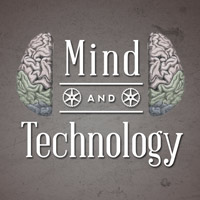Your Computer Doesn’t Know Anything

Jerry Coyne at Why Evolution Is True responded to my recent post defending libertarian free will, in which I pointed out that certain aspects of the mind — intelligence and will — are inherently immaterial. Because intelligence and will are immaterial, they cannot be yoked to matter deterministically, and are thus free in a libertarian sense. Coyne of course disagrees and raises some (uncommonly) thoughtful questions about the immateriality of intellect and will. I’ll reply to Coyne soon, but one of his commenters makes a point that begs for a prompt reply.
Commenter Ad Nausica:
By [Egnor’s] argument, computers can’t even work. For example, how does a computer know that a particular binary string is an ASCII character versus a binary number, or an executable instruction set. For anybody who knows how computers do work, the answer lies in the design of the computer chips, base instruction sets, and how more complex concepts are built from simpler ones. It’s actually not hard at all. [Emphasis mine.]
No. Your computer doesn’t know a binary string from a ham sandwich. Your math book doesn’t know algebra. Your Rolodex doesn’t know your cousin’s address. Your watch doesn’t know what time it is. Your car doesn’t know where you’re driving. Your television doesn’t know who won the football game last night. Your cell phone doesn’t know what you said to your girlfriend this morning.
 People know things. Devices like computers and books and Rolodexes and watches and cars and televisions and cell phones don’t know anything. They don’t have minds. They are artifacts — paper and plastic and silicon things designed and manufactured by people — and they provide people with the means to leverage their human knowledge.
People know things. Devices like computers and books and Rolodexes and watches and cars and televisions and cell phones don’t know anything. They don’t have minds. They are artifacts — paper and plastic and silicon things designed and manufactured by people — and they provide people with the means to leverage their human knowledge.
Computers (and books and watches and the like) are the means by which people leverage and express knowledge. Computers store and process representations of knowledge. But computers have no knowledge themselves.
Programmers and computer manufacturers have knowledge. Programmers and computer manufacturers know that a particular binary string is an ASCII character versus a binary number, or an executable instruction set. Your computer is a tool that programmers and manufacturers design and build to put their human knowledge of binary strings and the like to practical use. People merely use computers to carry out computations.
Ad Nausica’s implication is that the brain works like a computer, and that is how the brain endows us with knowledge in an entirely materialistic fashion. But the brain is not a computer (that’s another argument for another time), and if it were a computer, it could not be the sufficient cause of our knowledge, because computers cannot have any knowledge whatsoever.
In a sane world, the proper suggestion to a fellow who believes that his computer knows things would be to tactfully suggest that he seek professional psychiatric help.
It is remarkable how much damage has been done to our understanding of our world by materialist metaphysics. Note the irony: the same folks who believe that their household devices have knowledge and intelligence fail to notice the real evidence for intelligence in the formal and final causes that permeate nature.
